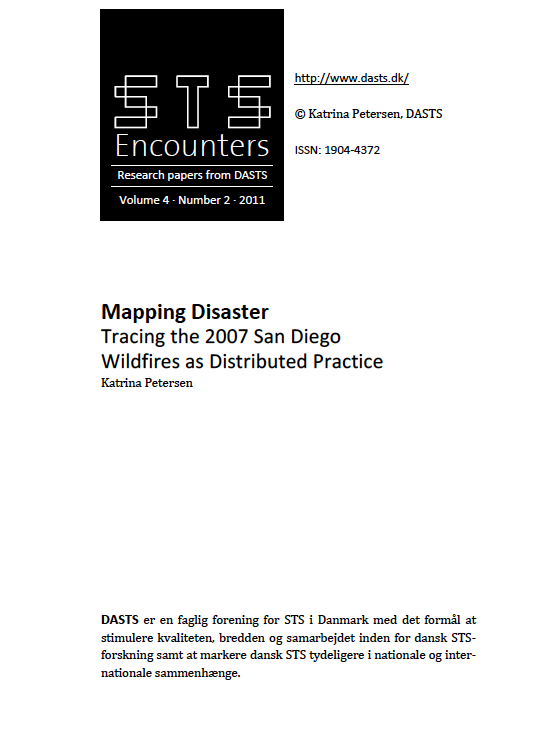Mapping Disaster
Tracing the 2007 San Diego Wildfires as Distributed Practice
DOI:
https://doi.org/10.7146/stse.v4i2.135123Abstract
This article examines the production of a highly referenced yet unofficial Google map made during the 2007 wildfires in Southern California to track the unfolding disaster in order to explore how, under duress of disaster, diverse actors and technologies interact to produce mutually legitimate ways of knowing that disaster. Drawing on informal interviews of key actors in the production of the map as well as textual analysis of government and scientific documents regarding the wildfires, I explore the improvisational practices that took shape in order to better understand how diverse voices, often non-authoritative ones, become part of the collective knowledge of that disaster. Engaging with visual culture studies, critical geography and science and technology studies, I expand upon the complexity of the relationship between representation and world, and argue that no single person, technology, or environmental factor was in control of the mapping practice. I find that the legitimacy and value of the map is to be found in the ad-‐hoc and often problematic interactions that produced the map, where wildfire expertise is not located in a specific training or position in society, but distributed over the network of interactions. Analyzing the relationship between representational practice and knowledge in this way, I argue, can help make visible how valued forms of knowledge were not determined a priori to the wildfires or map, but came into being along with the map.

Downloads
Published
How to Cite
Issue
Section
License

This work is licensed under a Creative Commons Attribution-NonCommercial-ShareAlike 4.0 International License.
Starting with volume 15, articles published in STS Encounters are licensed under Attribution-NonCommercial-ShareAlike 4.0 International (CC BY-NC-SA 4.0). The editorial board may accept other Creative Commons licenses for individual articles, if required by funding bodies e.g. the European Research Council. Previous articles are not licensed under Creative Commons. In these volumes, all rights are reserved to the authors of the articles respectively.




